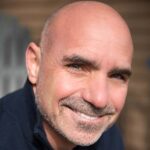Recently, Ron Fritz, CEO of Tech Soft 3D, hosted a roundtable discussion with four product development technology executives to learn more about their experiences of running early-stage companies during the challenges of a global pandemic.
How did they create and maintain a corporate culture, find new hires, and maintain business momentum over a year that included uncertainty and lockdowns?
Offering their thoughts on these and other matters are:
- Sam Burgess, CEO of SamsonVT, an interactive and immersive technical documentation company
- Mike Moceri, CEO of Maker OS, a business operating software for makers
- Paul Powers, CEO of Physna, a provider of 3D geometric deep learning software
- Daniel Siegel, Managing Director of ELISE, a generative engineering software platform
Q: When it comes to company culture, the early years are so important for creating a “flavour” for the company that will stay with it as it moves forward. I’m interested to hear what challenges people had with establishing company culture or defining “what we are all about as a company” when you’re growing quickly but people aren’t really able to get together in person.
Mike Moceri: Our culture – both pre-pandemic, as well as whatever phase of the pandemic we’re in now – has really been about being extremely adaptable. The other core pillar has been trust in each other, which is so important during an uncertain time like the pandemic, when everybody’s worried about their jobs, their health, and everything else going on in the world.
Everybody’s got to feel like they’ve got their buddy’s back. I think that’s been the biggest cultural strength for us, other than adaptability: everyone just trusting in each other.
We also all love to make each other laugh, so every single morning we have this ritual where we try to send the funniest GIF that you can find, and it goes into the general chat in our Slack. We also have game time on Fridays where people log on, and we’ll choose a game that we’ll all play online together. We did that pre-pandemic too, when we were in the office, so that routine was easy to transfer over to these new circumstances.
Daniel Siegel: Culturally speaking, our company had a big advantage in that seven of us had already known each other for ten years. So, the culture between a core group of us was already well established. We’ve hired quite a bit over the last year – at the moment we are roughly 25-30 employees – and we have some core values we try to instill in everyone to set the culture, so that it seeps in even when people are remote.
Besides that, we’ve taken various steps to help maintain our culture during the pandemic. We have a lot of online events; we have coffee talks. We even have a specific position in our company called Chief Fun Officer – CFO. This person gets elected every six months and gets a budget for events.
Sam Burgess: For the first year or two, there was really only one other person besides myself at the company, but over the past 12 months, we’ve grown to nearly 20 people. I think it’s fair to say that we don’t exactly know what our culture is yet because our culture has been so online. There are still a number of people I’ve not met in person who have been working for us for 7 or 8 months now.
That being said, the culture that’s formed is a very hardworking one – maybe a bit more workaholic than it should be, at the moment. That’s just a function of the fact that most things have been locked down during the pandemic and people haven’t had anything else to do with their time, really. So, we’re hoping to rebalance that a bit and let people know that after 2pm on a Friday, they should be free to leave their desks and go for a bike ride or something.
Paul Powers: I agree with the workaholic part. We’ve grown rapidly in the past year, and the simple fact is, there’s not a whole lot to do besides work when you can’t really go anywhere or do anything or meet up with anybody.
So, we’ve actually been very effective over the past year, which is good because as a company, we’re very ambitious, and we have really audacious goals.
The culture we’ve implemented is that we’re very supportive of one another, we celebrate wins, we celebrate each other, we encourage each other forward, and we help each other out. It’s a very positive environment. Since everyone’s working remotely, there may not necessarily be the same type of interactions as if you were in the actual office – you chat online rather than at the water cooler – but hopefully the feel is the same.
There are still a number of people I’ve not met in person who have been working for us for 7 or 8 months now
Q: What’s been people’s experience with hiring? In a remote setting, how have you tried to get at “Who is this person?” It’s easy to view their LinkedIn profile or a CV, but how do you replicate the personal connection of when you sit down with somebody in an interview?
Paul Powers: We’ve just used Zoom. You really can’t recreate the in-person experience digitally just yet, but it’s not too terribly far away. And frankly, a medium like Zoom has its advantages: You assume a lot of things when you’re meeting in person. You assume that you are able to read the interviewee a little bit better than you probably actually can. What I like about the remote hiring is that it forces everyone to remain very objective. There’s not as much subjective psychology involved in the decision making process.
Sam Burgess: I spent a long time in the army before I started my current company, and I worked in some really high performance units. I was in the special forces, so I’ve got an element of understanding as to what works in a team. Attitude is the big thing that we look for during the hiring process.
As the last year has shown, there’s a lot of uncertainty in the world and things you just can’t plan for, so you need to have an attitude of ‘Okay, this has happened – I’m going to work out a solution’. You can’t measure that quality on a CV or where somebody went to school.
If a person been willing to put themselves outside their comfort zone, that’s usually a good indicator, so we try to pre-screen for things that reveal attitudinal disposition when we’re thinking about hiring someone.
Mike Moceri: The people that we look to hire have a proven track record and a certain flexibility. I really like hiring developers or business development people or marketing people who have worked in different roles other than what their main job is. That allows them to essentially go from wearing their marketing hat one day to wearing their development hat on another day. During the pandemic, that flexibility allowed us to adapt to different market conditions and to different client needs.
Daniel Siegel: We are hiring talent all over the place in Germany. We also tested hiring remote workers outside of Germany, but German law makes things a little complicated because you have to set up the tax and legal stuff for every different country, and it gets pretty expensive.
a lot of those people that they let go are going to be extremely hard to hire back on because there’s so much demand for that talent.
Q: Let’s imagine that it’s ten years from now, and it seems like another pandemic is brewing. Someone you know that’s in the startup phase of their company says “What’s going to happen? You’ve lived through this – what’s your advice for me?” What would you tell them?
Mike Moceri: My advice would be: Don’t get distracted. Just because a catastrophic situation comes up doesn’t mean that you need to rush out and be the hero.
For example, when the pandemic first hit, one of our developers started a side project called Makers Against COVID, where we had this network of people using our software to help develop personal protective equipment. We spent a couple of weeks prototyping and pushing out a minimum viable product.
The issue is that – even though it was a good cause – it pushed back the timeline for our core product development. So, pause for a moment, don’t be reactionary, and make sure you can maintain focus on your core business objectives.
Paul Powers: I would add: Don’t make any big moves too quickly. When the pandemic first hit, a lot of startups made assumptions about what was going to happen economically, and they let a lot of people go.
I understand the temptation to do that when you think there’s going to be an economic downturn, but the economy came back pretty quickly. Now, a lot of those people that they let go are going to be extremely hard to hire back on because there’s so much demand for that talent.
The other thing I would say is: Take the virus seriously and focus on the wellbeing of your employees. We were very proactive about mandating work-from-home before it was even being mandated by the government. We made sure that people felt taken care of and had the right equipment that they needed, and that nobody needed to go into the office for anything. We gave people a little bit of extra money to upgrade their home internet if they didn’t have fast enough speeds at home.
I think that when the company shows people that it cares about them, it’s one less thing for them to worry about, and they’re better able to focus on their jobs.
Daniel Siegel: I agree with Mike and Paul, and would say the same. Maybe one other piece of advice, based on our own experience, is to see if there is actually any advantages to the situation. For example, some of our competitors were a little bit ahead of us with their product development before the pandemic.
Once COVID-19 hit, the market froze up a little bit, and sales were put on hold. We were able to use that time to our advantage to develop our product and get it up to speed for when the market fully opens up again.
Sam Burgess: Couldn’t agree more: Within every crisis, there’s opportunity, and we definitely saw that. We had a project with the UK automotive manufacturers last year that was scheduled to start on 1 April – and on 30 March, the auto companies unanimously shut down, pretty much overnight. We had to go back to the UK government, who had just awarded us the contract for this project, and request a slight change in scope. The scope was to change it from automotive to general manufacturing.
Suddenly, it opened up a whole new world to us that we were able to capitalise on while other people were still mainly worrying about what the impact of COVID was going to be. 12 months ago, an opportunity like this never would have even crossed my mind – it’d be unthinkable. That’s why I’d tell anyone to look for the opportunity within the crisis.











